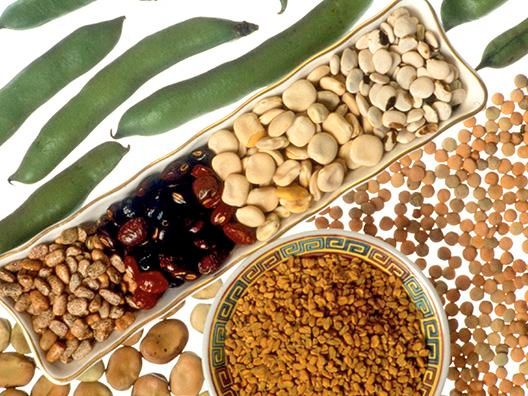Health: low-meat and meat-free diets associated with lower overall cancer risk
Eating meat five times or less per week is associated with a lower overall cancer risk, according to a study published in the open access journal BMC Medicine.

Photo by Nadine Primeau on Unsplash
Cody Watling and colleagues from the University of Oxford, UK investigated the relationship between diet and cancer risk by analysing data collected from 472,377 British adults who were recruited to the UK Biobank between 2006 and 2010. Participants, who were aged between 40 and 70 years, reported how frequently they ate meat and fish and the researchers calculated the incidence of new cancers that developed over an average period of 11 years using health records. They accounted for diabetes status and sociodemographic, socioeconomic and lifestyle factors in their analyses. 247,571 (52%) of participants ate meat more than five times per week, 205,382 (44%) of participants ate meat five or less times per week, 10,696 (2%) ate fish but not meat, and 8,685 (2%) were vegetarian or vegan. 54,961 participants (12%) developed cancer during the study period.
The researchers found that the overall cancer risk was 2% lower among those who ate meat five times or less per week, 10% lower among those who ate fish but not meat, and 14% lower among vegetarians and vegans, compared to those who ate meat more than five times per week. When comparing the incidence of specific cancers with participants’ diet, the authors found that those who ate meat five times or less per week had a 9% lower risk of colorectal cancer, compared to those who ate meat more than five times per week. They also found that the risk of prostate cancer was 20% lower among men who ate fish but not meat and 31% lower among men who followed a vegetarian diet, compared to those who ate meat more than five times per week. Post-menopausal women who followed a vegetarian diet had an 18% lower risk of breast cancer than those who ate meat more than five times per week. However, the findings suggest that this was due to vegetarian women tending to have a lower body mass index (BMI) than women who ate meat.
The researchers caution that the observational nature of their study does not allow for conclusions about a causal relationship between diet and cancer risk. Additionally, as UK Biobank dietary data was collected at a single time-point, rather than over a continuous period of time, it may not be representative of participants’ lifetime diets.
The authors suggest that future research could investigate the associations between diets containing little or no meat and the risk of individual cancers in larger populations with longer follow-up periods.
Most read news
Topics
Organizations
Other news from the department science

Get the food & beverage industry in your inbox
By submitting this form you agree that LUMITOS AG will send you the newsletter(s) selected above by email. Your data will not be passed on to third parties. Your data will be stored and processed in accordance with our data protection regulations. LUMITOS may contact you by email for the purpose of advertising or market and opinion surveys. You can revoke your consent at any time without giving reasons to LUMITOS AG, Ernst-Augustin-Str. 2, 12489 Berlin, Germany or by e-mail at revoke@lumitos.com with effect for the future. In addition, each email contains a link to unsubscribe from the corresponding newsletter.
Most read news
More news from our other portals
Last viewed contents

Diets High in Fiber Associated with Less Antibiotic Resistance in Gut Bacteria

Brewing beer can also be energy-efficient - thanks to measurement-based optimization




























































